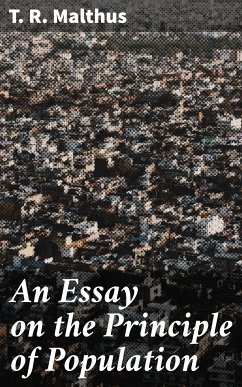In "An Essay on the Principle of Population," T. R. Malthus presents a compelling examination of the relationship between population growth and resources. Written shortly after the Enlightenment, this seminal work employs a rigorous, analytical style to explore the limits of human expansion, arguing that population tends to grow exponentially while resources grow arithmetically. Malthus's provocative thesis introduced concepts such as the 'Malthusian trap,' which suggests that unless checks such as famine, disease, or moral restraint are enforced, societies would face inevitable crises. His work served as a catalyst for discussions in economics, sociology, and political science, influencing various ideologies regarding population control and resource management. T. R. Malthus, an English cleric and scholar, was propelled by the climatic shifts of his time and the socio-economic transformations brought forth by the Industrial Revolution. His firsthand observations of poverty and social disarray in emerging urban centers fueled his exploration of the dynamics between societal welfare and population pressures, establishing a scholarly dialogue that resonates through subsequent generations. Malthus'Äôs academic rigor and innovative ideas laid the foundation for modern demography. This book remains a crucial text for those interested in ecology, economics, and ethics, providing not only historical insight but also a framework for understanding current global challenges. Readers are encouraged to engage with Malthus's arguments to better comprehend the complexities of human society and its sustainability.
Dieser Download kann aus rechtlichen Gründen nur mit Rechnungsadresse in A, B, BG, CY, CZ, D, DK, EW, E, FIN, F, GR, H, IRL, I, LT, L, LR, M, NL, PL, P, R, S, SLO, SK ausgeliefert werden.









